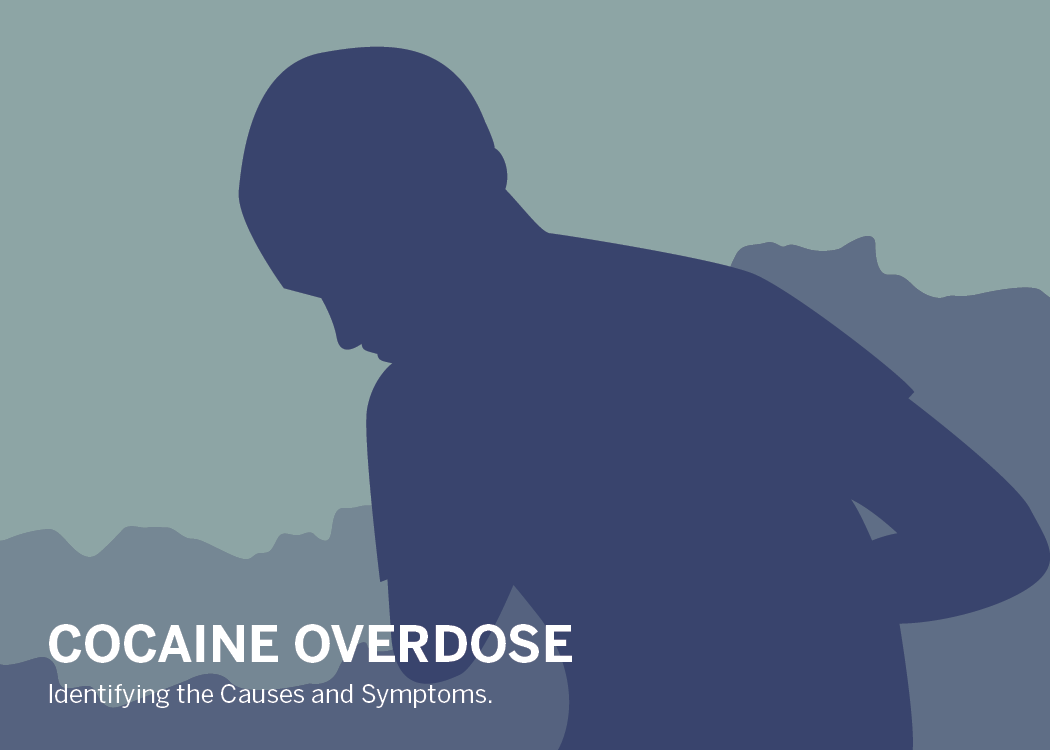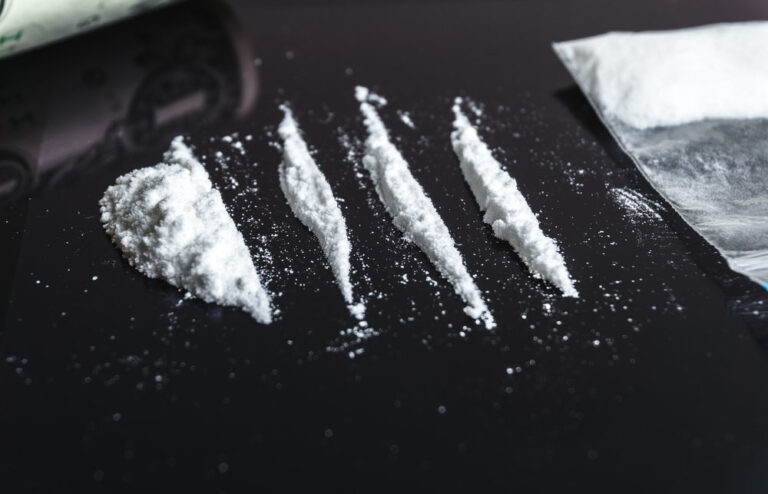The Story of Cocaine Overdose & Serious Symptoms
If you or someone you know is experiencing a cocaine overdose, please call 911.
An all too common story behind accidentally overdosing on cocaine, as told by a college student:
What started as a simple way to relieve stress ended with an ego trip that almost cost me my life. As a college student on a full-ride scholarship, I knew what it would cost if I sought help for my addiction. And I knew I was not going to take my current life and flip it upside down for something like this… but at the same time I didn’t want to die from my ego.
So, let’s start at the beginning. It started as any other day would. Wake up, go to a class, try to get some ideas down on paper. I’m an artist, or I try to be. I recently gave up all other substances with the exception of cocaine and alcohol. Cocaine for focus and alcohol for fun, or that is what i told myself anyway.
My usual routine for the day ended with a few lines in the evening, just to help me do the things I knew I needed done. Of course I knew about overdose and the possibilities but that was something that happened but never to me. It couldn’t, or it wouldn’t. But then it did.
What Happens When You Overdose on Cocaine?
People who repeatedly use cocaine may seem ready to go all the time, ready to do the next task, the next goal, the next mission. They will be energetic and have a peppy energy that is oftentimes unmatched by those around them.
They have a boundless energy and most of the time they keep on going like the Energizer bunny. A lot of people mistake the way someone acts while using cocaine regularly as a peppy personality.
Sometimes, the person might also seem a little frantic. You may notice wild ideas and low impulse control. Looking for these signs can help families and friends to recognize cocaine use or addiction early. It can be crucial during these times to get help for cocaine addiction before it is too late.
However, typically they also appear edgy which can seem unusual. Repeated use can also lead to excessive use. Using large amounts of cocaine in a single sitting or across a small timeframe like a few days—can risk overdose. In severe cases this can lead to seizures and death.
When someone you know or love is overdosing on cocaine, you may notice some unique symptoms like those listed below.
Cocaine Overdose Symptoms
What makes overdose complicated is that sometimes, particularly cocaine overdose, is not solely dictated by the amount taken. You can actually end up accidentally overdosing after only a few hundred milligrams of cocaine. Risk for overdose for cocaine is wildly unpredictable. This is because cocaine potency varies widely, since the drug is made on the street.
Realistically, you can’t know exactly how much cocaine is in the batch. Cocaine is also regularly cut or laced with other drugs, like heroin or fentanyl. Cocaine on its own increases central nervous system functions, which is in part why it is known as a stimulant.
When someone takes cocaine, physically they will experience an increase in core body temperature, heart rate, and blood pressure.
In overdoses, these side effects are extreme. Depending on what organs have been affected in the event of an overdose, dangers of cocaine overdose may include:
- chronic symptoms of psychosis
- chronic anxiety
- kidney failure
- destruction of muscles
- lasting effects on mental functioning
- heart problems
- stroke
- paralysis
- seizures
- sudden death
What Do I Do If Someone Experiences Symptoms of an Overdose on Cocaine?
It can be scary and unpredictable when someone you know overdoses. First thing is to remain calm and call 911 if you think someone may be overdosing. After calling, it is important that you remember and follow these steps.
- Ask questions of the person you suspect to be overdosing and work to keep them talking and awake.
- Turn them on their side if they are having trouble breathing
- Give any first aid directed by 911 and follow any and all direction that they give you
- If you are qualified and of sound mind, try to perform CPR as needed
Make It Your Mission To Not Let Them Use Cocaine While Having an Overdose
Remember as well that it is critically important that you do not let them continue taking the substance that you suspect they may be overdosing on. In fact, it is best that they do not take any other substances unless directed otherwise by emergency medical services (EMS) or 911.
During your wait for EMS, it is important that you, again, remain calm. You also may try to get as much information as you can ready to tell them like when the last dose was taken, how much was taken, if any other substances have been used recently and if they have taken any prescription medications recently.
Overdose on any substance is more common than many of us realize but in recent years, cocaine has made a resurgence in both usage and overdose.
Survey Says: A Look At Cocaine & Cocaine Overdose Statistics
Around 913,000 Americans met the Diagnostic and Statistical Manual of Mental Disorders (also known as the DSM-5) criteria for dependence on cocaine. According to the National Survey on Drug Use and Health(NSDUH), in 2014 there were 1.5 million users of cocaine aged 12 and older.
We also saw in 2011, as reported by the Drug Abuse Warning Network, that cocaine was involved in 505,224 of the 1.3 million visits to emergency rooms for drug use. That means that one in four drug use emergency department visits involved cocaine. That makes up a whopping 24% of all ER visits.
Overdose Statistics Surrounding Cocaine
The 2019 Drug Enforcement Agency (DEA) National Drug Threat Assessment lists cocaine as a resurgent problem in the U.S. meaning that the legacy of cocaine usage in the U.S. is not only on the big screen in movies. It also tells us that it is not a drug that was left in the 80s.
The DEA also reports more cocaine than ever before, from the amount of bricks seized, was cut with other substances. This can lead to increased risk of overdose on not only cocaine but other substances that are used to cut cocaine like fentanyl, heroin or other dangerous substances.
This could be in part why the average price is going down for cocaine across the country, which again in turn is leading to more potential for overdose. Aside from that, forensic labs across the country are reporting more cocaine use than the previous three years.
According to the Centers for Disease Control, also known as the CDC, during the timeframe of 2012 to 2018, the rate of drug overdose deaths involving cocaine more than tripled! That means that in 2012, the rate was 1.2 (about 2 people for every 100,000) whereas in 2018 the rate was 4.5 (about 5 people for every 100,000). This tells us that the total number of overdoses from cocaine has been increasing across the country.
We can also see this in the graph from the CDC. It shows the number of cocaine deaths from overdose as bars and the difference between the number of male versus female overdoses as lines. We can see that males are more likely than females to overdose on cocaine.
These numbers can tell us a lot, but they don’t tell us one very important piece of information: what do we do next?
Is There Treatment for Cocaine Use After Overdose?

There are a lot of programs to choose from and of course a lot of factors to consider when looking for the right cocaine addiction rehab setting.
For some, the risk of relapse is high. This may especially be true when they continue to live at home. Or maybe long-term friendships with people who use cocaine put them into a situation that makes it hard to say no.
Some programs include an inpatient level of care, meaning that someone moves out of the home and into the facility for around-the-clock supervision and assistance. An inpatient setting is one of the best options for these reasons, as it removes the triggers altogether. This is often how detox programs are set up and further inpatient care follows immediately after.
Other programs provide what is known as outpatient care, so people can continue to live at home while working on their addictions. These allow for those concerned about their family lives, work lives, or even the stigma around seeking care to get the help they need on their own time.
For some people, family members and friends provide both support and understanding. Maybe they need their community to motivate them to stay in treatment, and need the routine of home and work in order to stay on track with treatment.
Our Mission: Treatments and Help for Cocaine Addiction and Overdose Offered at Shadow Mountain
At Shadow Mountain, we understand that addiction is a whole-person problem and that treatment needs to help the whole person as well. That is why all of our locations offer:
- Therapeutic Activities
The primary focus of our individual and group therapy sessions is to learn more. It is important to learn more about yourself and your relationships as well as your addiction. Our sessions offer a safe environment to express your emotions. They also help you to learn brand-new and healthy skills of coping. Group sessions are held on a daily basis, while individual sessions will be held as determined by you and your therapist.
- Exercise and Nutrition Programming
Stimulants—like cocaine—tend to cause a loss of appetite and weight loss. The cocaine rehab program at Shadow Mountain Recovery focuses on a biochemical treatment approach, which consists of a tailored nutrition plan that is based on your symptoms. In order to help ease the symptoms, it is important to maintain an adequate diet and routine.
- Leisure and Recreational Activities
These types of activities offer structure on a daily basis and help you find brand-new hobbies outside the world of addiction. It can be common to experience symptoms like lack of motivation and pleasure, fatigue, depression, and feeling restless. So, we offer a number of activities for various interests, including arts, sports, and cultural events.
Cocaine Overdose FAQs
Shadow Mountain Cocaine Addiction Treatment and Care After Cocaine Overdose
Shadow Mountain Recovery offers individualized, effective, and innovative solutions for your clients, neighbors, colleagues, friends, acquaintances, and family members struggling with cocaine dependency, substance use, and any other addiction. Please call us at 505-657-2117 if you or someone you know is struggling and contemplating rehabilitation.









